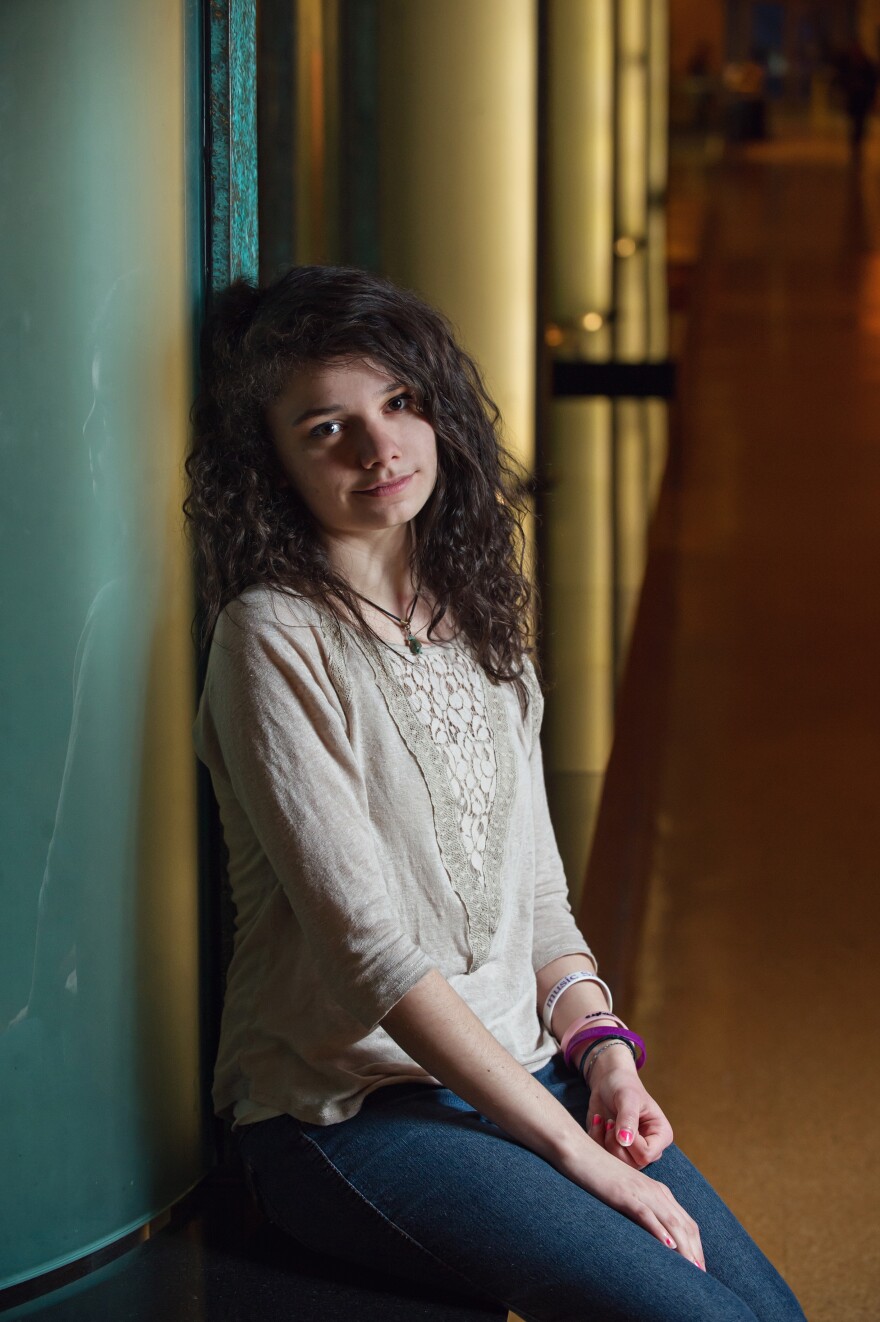That’s what Katie Doyle, who runs a nonprofit resource center for kids in crisis called Ozone House, says people don’t realize about youth homelessness. Doyle spoke at a recent, and packed, screening of https://vimeo.com/77430311">The Homestretch, a film that follows three homeless teens in Chicago trying to find safe and stable housing.
Doyle explained that even in affluent parts of Michigan, kids can become homeless after a huge blowout with parents and guardians. They’re either kicked out or forced to leave because they don’t feel safe at home anymore. This is especially true for teens who identify as LGBT.

We still think of homeless kids as criminals. Brittney Barros, a 16-year-old Ozone peer outreach worker, says many people still think homeless kids are all drug addicts, high school dropouts, or from poor families. “People think homeless youth deserve to be homeless, that they did that to themselves,” says Barros.
Barros was homeless for seven months when she was only 14 years old. She lived outside, sometimes in a tent or car, and didn’t have any food. Despite her transient past, Barros – now with stable housing at her grandma’s house – looks like any other teenager. If she didn’t tell you she was homeless, you’d never know.
Even I forget how difficult it is to recognize kids who are homeless from those who aren’t. It’s impossible to tell where a kid is going once they leave school, or if they have a place to go. The homeless teens featured in The Homestretch, for example, blended in with their peers. They wore clean clothes and jewelry, and the majority even had iPhones. They just didn't have a place to sleep at night.
State Rep. Adam Zemke, D-Ann Arbor, says current laws can make things worse once kids start down the path of homelessness and act as a pipeline to things like human trafficking or the criminal justice system. “Right now, the system is set up to fail,” says Zemke.
Michigan has been making some strides for homeless kids, like covering the cost of the GED exam and changing the way we count young people who are homeless. Washtenaw County – where Ozone House is located – has started to shift its resources from transitional housing interventions that have been proven to work better for young people, like emergency shelter and permanent supportive housing.
But the changes need to come faster, says Zemke. “Michigan’s not doing enough.”





